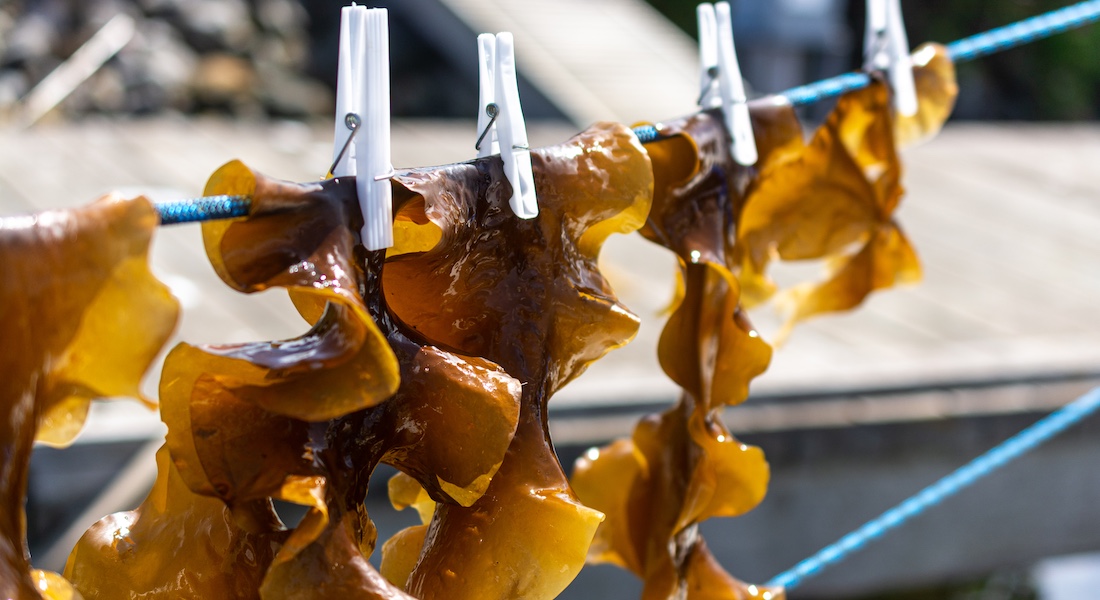Fermented seaweed found to boost gut health and immunity in Atlantic Salmon
A new study has found that fermented sugar kelp can enhance gut health and immunity in Atlantic salmon, offering a sustainable solution to boost fish welfare in a growing aquaculture industry.

Conducted across both land-based and open-water aquaculture environments, the researchers investigated the effects of including up to 2% of fermented seaweed - sugar kelp (Saccharina latissima) - in salmon diets using a holo-omics approach that looks at metabolic responses of both the salmon and its microbiome. The research is part of the HoloFood project based at Center for Evolutionary Hologenomics, Globe Institute, University of Copenhagen.
A safe supplement
The findings showed no negative impact on fish growth or health, confirming that seaweed supplementation is a safe dietary addition. More importantly, the seaweed stabilised the fish’s gut microbiome, promoting beneficial bacteria and reducing the prevalence of harmful pathogens, such as Aliivibrio bacteria. Additionally, molecular analyses indicated that seaweed enhanced the fish’s immune system by stimulating pathways related to mucus production and intestinal health.
“Our observation that 2% added seaweed has no negative consequences on growth is potentially huge as this means we can reduce relative inclusion of less sustainable feed ingredients such as soy or fish meal proteins” says Associate Professor Morten Limborg.
The study also highlighted that seaweed supplement increased feed utilization and hence an improvement in feed efficiency, suggesting potential feed cost savings for the aquaculture industry. Although iodine levels in the fish increased with seaweed consumption, they remained well within safe limits, ensuring consumer safety.
More sustainable food production
“The projected growth of aquaculture requires continuous optimisation of feeding regimes, especially in enhancing disease resilience through immunostimulating feed additives. Seaweed is promising due to its proposed immunostimulant effects, while mitigating carbon emissions and marine eutrophication as it can absorb CO2 and nutrients released from fish farms and other anthropogenic sources.“ Morten ends.
This research positions fermented sugar kelp as a promising feed additive, capable of improving fish health and supporting sustainability in the growing aquaculture sector.
Read the published study in Science Direct here.
Contact:
Associate Professor Morten Limborg
